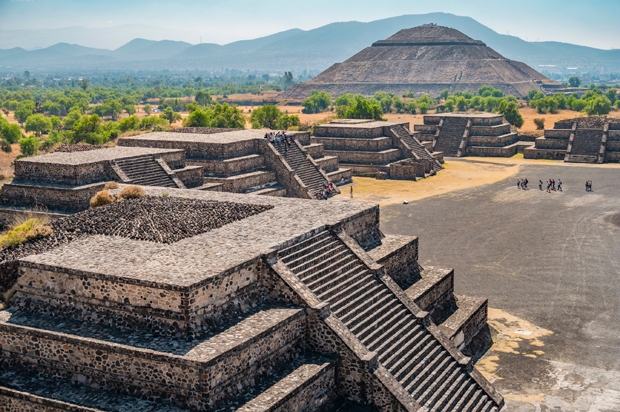Bogotá airport, immigration form in hand. Tourist, migrant, businessman? Andrés Neuman ponders the descriptors, unsure which to tick. He opts for the second. ‘I’d like to be a migrant.’ The decision is telling, and frames much of what follows in this curious, delightful, if disjointed book.
Neuman is hot property in contemporary Latin American literary circles. A former winner of Spain’s prestigious Alfaguara Prize and the National Critics Prize, he is tipped (by Roberto Bolaño, no less) to be one of a select ‘handful’ to take up where the ‘boom’ generation of Márquez, Cortázar, Fuentes and Borges left off.
His widely acclaimed novel Traveller of the Century (his fourth book, but the first to be translated) propelled him to the attention of the English-speaking world. Suitably, given the title, it also sent him on a breakneck book tour of Latin America and the Caribbean, which he describes in How to Travel Without Seeing. The book covers 17 capital cities in total, from Buenos Aires to Miami (the de facto centre of the new Hispanic world) with a chapter devoted to each.
Some writers thrive on book tours; others resent the time away from their desks. Neuman appears to be split between the two. At times, he seems excited by the adventure of it all — visiting the pre-Columbian Mexican city of Teotihuacán, say, where for the only time in history philosophers ruled priests (‘naturally, they disappeared’). At other times, you sense he’d rather be anywhere else than on the road. Checking into endless hotels, he amuses himself by developing an unorthodox system for grading them. Caracas Palace, Venezuela: ‘Hotel environment: oil-rich Stanley-Kubrick. Reception style: phantasmagoric.’
This is not a conventional travel book by any means. ‘If I was going to travel on the fly,’ Neuman reasons up front, ‘I would write that way also.’ So forget the lyricism of Patrick Leigh Fermor, the historic sweeps of V.S. Naipaul or the episodic comedy of Bill Bryson. How to Travel Without Seeing is, in essence, a collection of journal jottings: the author’s notebooks transcribed in a rush; fragments of thought; overheard conversations; advertisement slogans; television snippets; stray lines of poetry. An honest reflection of most contemporary travel experiences, in other words.
If that sounds bitty, then it is; and yet the book works. This is partly thanks to Neuman’s eye for the absurd and ironic — Colombia’s Televisión Española, for example, ‘scrupulously selects’ the very worst of Spanish TV to disseminate abroad. More important still is his gift for the succinct. Places and people are captured in a single, spot-on phrase. Lima is the ‘club among clubs’; the estuary bay of San Juan flows gently to the sea ‘like someone falling asleep before drowning’. Aphorism, a literary device now hijacked by the Twitterati, is used to powerful effect here.
Ultimately, this is an odd travel book because Neuman is an odd traveller. Despite the miles he covers, he relishes remaining still, because his great passion is reading. He wolfs down books with an enthusiasm that most tourists reserve for sangria and sun-scorched sex. The result reads like the very best kind of bibliophile TripAdvisor. The work of the Argentinian writer Samanta Schweblin is ‘Dry. Tough. Coldly observed, brutally narrated.’ The mark of Ecuadorian writing: ‘Breath fiery with waiting… a literature turned volcano.’
On politics, however, the book is strangely silent, even though politics is everywhere in Latin America — and, some might say, everything. Other than a coup slowly playing out in Honduras (repeated references to which badly date the book), Neuman avoids the subject. But this is far from being an apolitical book. What is it, he asks, to travel when globalisation makes everything seem the same? What sense do national borders hold for a writer like himself, born in Argentina and brought up in Spain? Can one travel further by not moving, by simply imagining the possible?
All are profoundly political questions in their way. Neuman, the self-elected migrant who admits to knowing nothing about business and caring little for tourism, answers them elliptically. Much as he travels, in fact.






Comments